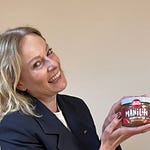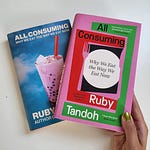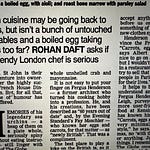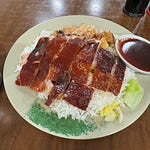Good morning and welcome to this special edition of Vittles. The following article is an abridged transcript of a conversation between five people involved in the Bristol food and media scene ─ Fozia Ismail, Jan Ostle, Aine Morris, Khalil Abdi and Holly Nash ─ taking off from an article published last year in Vittles. If you wish to listen to the whole …
Bristol is not a melting pot, part 2
A conversation between Fozia Ismail, Holly Nash, Aine Morris, Khalil Abdi and Jan Ostle
Apr 09, 2021
∙ Paid












